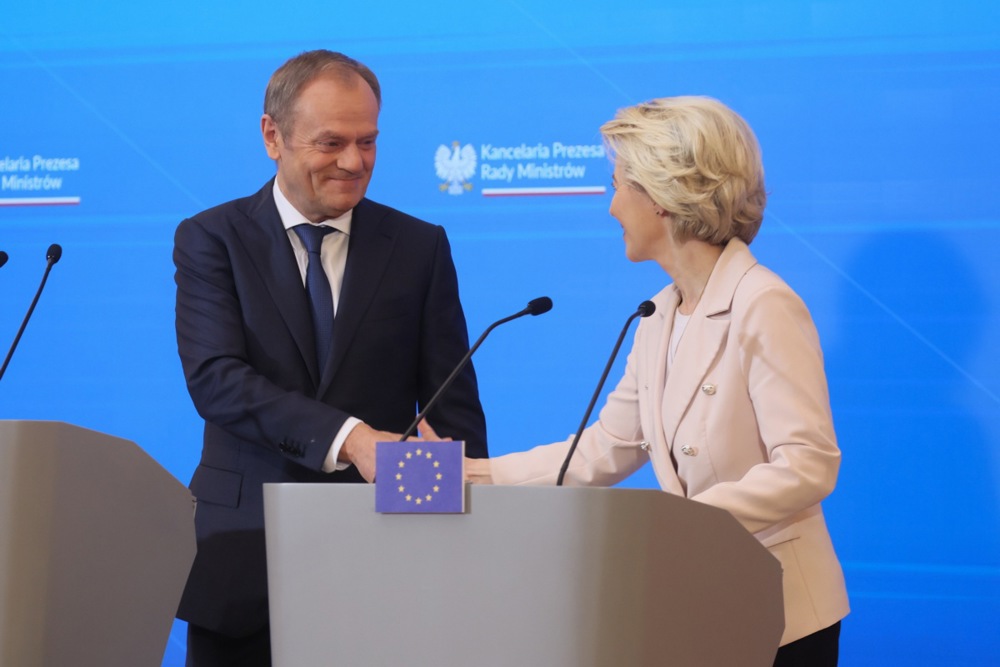Poland’s foreign ministry says the government will ignore a law giving President Andrzej Duda the right to countersign the Tusk administration’s nominee for European Commissioner, because it believes that law to be unconstitutional.
Duda is a supporter of the former ruling party, the Conservatives (PiS).
The government considers the law giving Duda the ability to veto appointments for European Commissioner to be unconstitutional, because according to the Polish constitution, foreign policy is the competence of the government.
The junior minister added the government is planning to “by-pass the regulation”, though Poland’s constitutional court has not yet ruled on whether it is constitutional, deputy foreign minister Andrzej Szejna told commercial radio TOK FM May 6.
The President has the power to countersign other appointments, such as ambassadors. That right has not been challenged by this or other governments.
However, the ruling majority backing Donald Tusk does not recognise the present make-up of the constitutional court.
It has introduced legislation to change it, though Duda has said he will not support the proposal.
Szejna criticised President Duda for supporting PiS at home while being more conciliatory when abroad.
“When he is in Poland he reverts to [his] Mr Hyde mode of being a PiS man, so I fear there is conflict ahead”, Szejna said.
The PiS has said it wants senior MEP Jacek Saryusz-Wolksi to be the country’s European Commissioner.
But it is the government and not PiS who has the right to nominate the candidate, and the “president must cooperate with the government over foreign policy”, Szejna argued.
It is rumoured the Tusk government would like Poland’s foreign minister Radosław Sikorski to serve in the new role of European Commissioner for defence in the next European Commission.
Szejna was convinced that there would be no legal consequences of bypassing the legislation on the president’s countersignature.
Any nomination by the Polish government would be acceptable to the decision-making bodies of the European Union, he said.
The fracas of the President’s rights comes in the wake of other foreign policy disputes on hosting nuclear warheads, and a Poland proposal for NATO member states to spend 3 per cent of their GDP on defence.
Foreign minister Radosław Sikorski recently criticised the president for saying Poland was ready to host nuclear weapons on its soil without consultation with the government.
Szejna, during his radio interview, criticised the President’s position on pressing other NATO member states to commit at least 3 per cent to defence.
It would enable Donald Trump to divide NATO, and was an example of how often “the road to hell is paved with good intentions”, said Szejna.
It is not the first time the Tusk government has deemed legislation passed by its predecessor as unconstitutional and chosen to by-pass it.
It acted in a similar manner over the takeover of Polish public media, as well as over the President’s right to countersign nominations for the job of the country’s public prosecutor.





